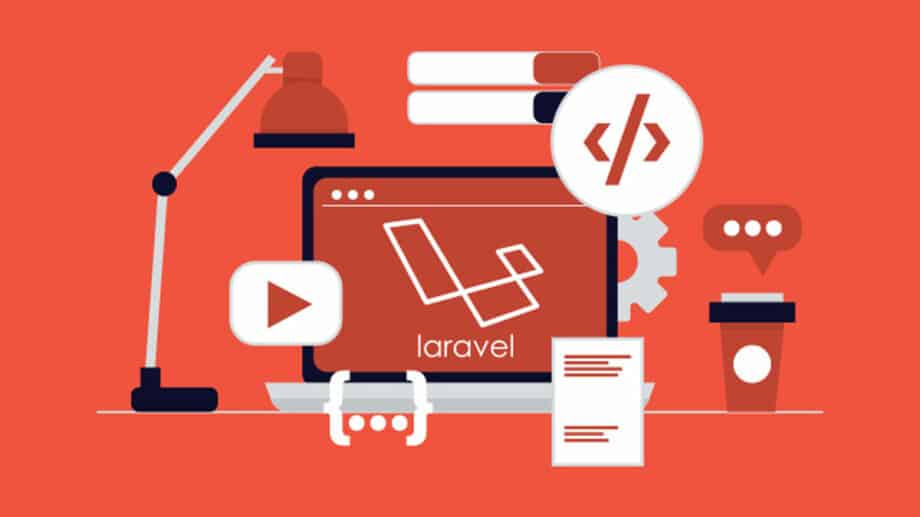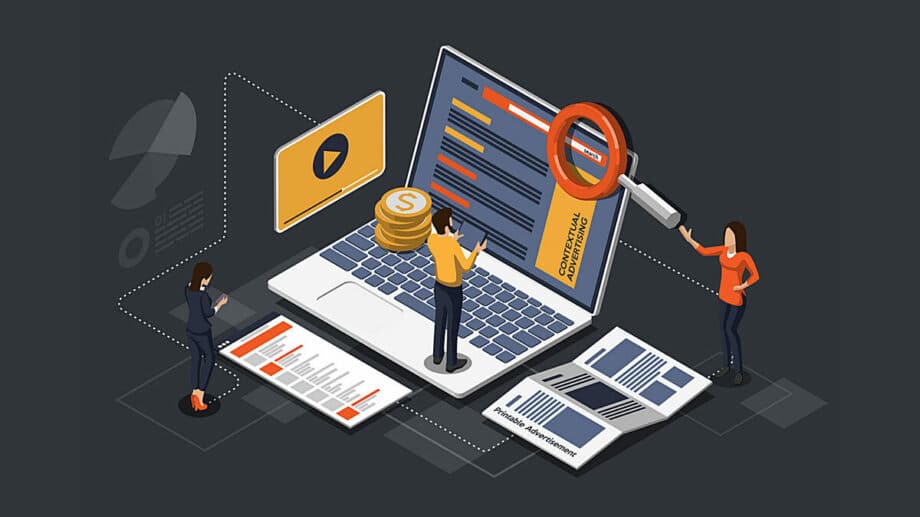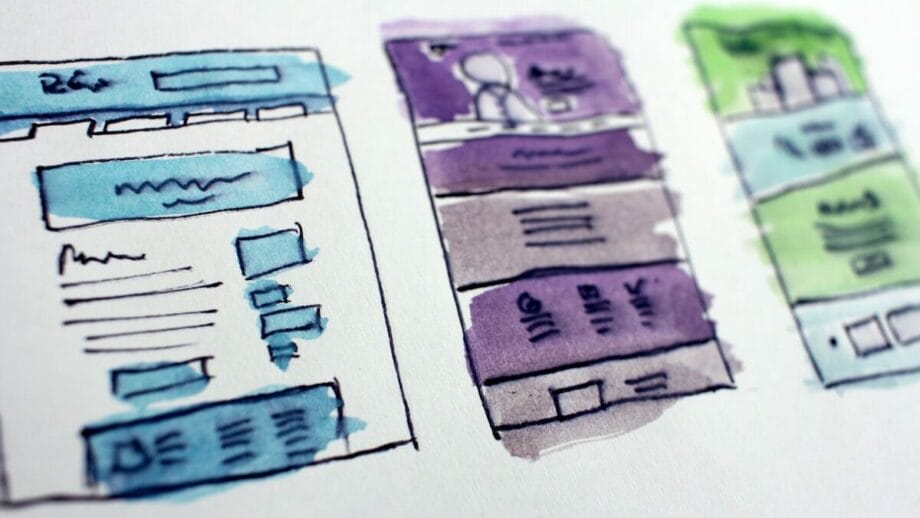Article Note: This article “12 Best PHP Frameworks for Beginner to Pro Developers” was first published on August 5, 2016. We last updated this article with fresh information on November 21, 2023.
PHP is the most popular web programming language on the Internet, and it is behind the coding of 77% of websites or web applications on the web, including widely known websites like Wikipedia, Tumblr, Facebook, Etsy, etc. PHP has earned such success due to its peculiarities in facilitating modern web development.
The adoption rate of PHP as a programming language is high due to its flexibility, server-side programming, and ease of learning/simple syntax, as well as smooth integration capabilities with other languages.
It is a robust scripting language often used to charge up the backend of a website from servers to databases. Consequently, many esteemed businesses want to hire a reliable PHP development company to build a website for their company.
Along with skilled PHP developers, selecting a suitable PHP framework is what promises the success of a website. PHP frameworks streamline the website development process by minimizing the coding, automating tasks, and simplifying the maintenance. Therefore, it is crucial to look for PHP frameworks and utilize them effectively for quality web solutions.
What are the Benefits of Using PHP Frameworks?
Unfortunately, the flexibility of PHP is resulting in lean, haphazard, and unstructured code. Therefore, the PHP development process proves to be a daunting, time-consuming, and costly affair.
To mitigate such issues, the PHP developer community has evolved some decent frameworks to offer innovative technologies, useful tools, code architecture, and methodologies to ease the life of PHP programmers and PHP designers in a broad sense.
Almost every PHP framework is Model, View, and Controller (MVC), making it easy for developers to arrange web application logic. Also, this architect is easily modifiable, meaning your developers can effortlessly edit/update any feature of the website. If we are going to list some distinct benefits of PHP frameworks, we can say:

Related: 10+ Best PHP Scripts to Make Your Own Directory Website.
Faster Development Time
PHP frameworks speed up the entire development process through structured coding and tools to avoid repeat coding for generic components and modules. PHP programmers can use generic components repeatedly in several projects by one-time development efforts. Therefore, developers nowadays prefer frameworks that provide many benefits to improve the development process, such as modularity to provide an easy architecture.
Most of the PHP frameworks follow MVC paradigms by separating design/presentation from the application logic/programming. Thus, it enables PHP designers and PHP programmers to work on the same project simultaneously and without any conflict. Thus, such collaborations speed up the development process with fast iteration and improvements.
Better Collaboration and Learning
When you hire a team to work on your project, you must be looking to improve communication between them. By using PHP frameworks, your team can constantly review the code and validate it. Hence, it helps to improve the development process.
Selecting a framework with a strong community provides many benefits, such as access to resources, tools, tutorials, coding tips, coding snippets, etc. Thus, they can create more learning and collaboration opportunities. Also, they can share their ideas, ask questions, and get the proper guidance on effectively developing a website. Therefore, using a framework fosters better teamwork.
It Helps to Enhance Security
The developer community not only contributes to releasing new features and resolving your queries, but they also help to ensure better security. PHP frameworks have out-of-box security features and tools to support the latest security technologies and integration of 3rd party security tools/APIs/software. They continuously work to mitigate security vulnerabilities in the framework, and that improves the security level.
Web applications are under constant threat from security attacks and data breaches. Therefore, business owners should focus more on creating a website with robust security. And a PHP framework with built-in security features can help you protect your website against malicious activities online.
Requires Less Coding
With accessible features and coding guidelines, frameworks make it easy for companies to deliver PHP development services. Additionally, developers who follow optimized coding practices can build their websites effectively.
Hence, not only can you write neat and clean code with PHP frameworks, but you can also maintain scripts for more organized patterns.

Scalability
PHP frameworks are built on one unified structural foundation, so they offer scalability and stability. The framework follows high development standards, keeps code organized, and enhances maintainability. Therefore, it provides room for application to grow and evolve in the future without any constraint for further coding compliance.
Take Less Time, Effort, and Cost
When developing and testing a site takes a lot of time, it increases the project cost. Therefore, it is essential to focus on creating a thorough project scope and using a robust framework. Moreover, give priority to selecting a framework that is scalable so that you can easily implement the required changes.
Support Modern Programming
Modern web development practices involve object-oriented programming (OOP), and the majority of frameworks support it.
Now, we know the significance of the PHP framework in the PHP web development project so the question is why it is important for a client to know anything regarding the PHP web development frameworks and how it can help them.
Why Should Clients Know About PHP Frameworks?
Today myriads of PHP frameworks have been in use by PHP developers and selecting the right one indeed can make a difference in the turnaround time and cost of a PHP development project.
If a client simply asks a question to the developer or team of developers regarding the PHP framework they are going to use in the project, it immediately invokes a feeling that the client is tech-savvy and serious regarding the project.
Thus, they may take the project seriously and come up with a likely reason describing why they are leaning towards a particular PHP framework for the current project, and how it can prove beneficial to the client.

Factors to Consider When Choosing a PHP Framework
There are many factors that you need to consider for finding the proper PHP framework for your web project. However, it all comes down to the type of website and the requirements you have to select a suitable framework for your project.
Does it Improve Performance?
When you adopt a framework, you must be looking to improve the development speed and performance. With the PHP framework, you can streamline many tasks, such as managing database queries, code execution, and debugging.
Additionally, look for a framework that optimizes your project development process and aligns with team goals.
What Type of Requirements Do You Have?
As a business owner, you should be aware of your project requirements clearly. You can answer various questions to have a better understanding of what type of project you want, such as:
- What are your prioritized features?
- What is the goal of your website?
- What web technologies you are going to work on?
This way, you can get a better idea of your website, and you will be able to choose a PHP framework that can cater to those requirements.
For example, a simple website should work on a framework that is faster and lightweight. At the same time, a complex website requires a robust PHP framework with rich features that can handle changing project needs.
Does it Have Community Support from Developers?
When you start developing a website, you can get stuck anywhere during any task. That’s when you need support from developers to resolve your queries. Therefore, it is recommended to choose a framework that has a large community of contributors.
When you select a framework with significant community support, you can rest assured that it will be updated to remove bugs and release new features. Also, you will be getting proper documentation so you can easily understand the newly added components.

Maintenance and Long-term Goals
As an entrepreneur, you must be looking to scale your business and generate better ROI. Therefore, it is essential to look for a framework that can withstand your visionary business goal. A PHP framework that is updated regularly to provide better security, new features, and fix bugs., will help you develop a successful web solution.
Moreover, a framework that prioritizes regular updates ensures your web application stays secure and updated according to the latest trends.
Documentation
A framework with proper documentation represents effectiveness and reliability as it provides resources to help developers with features and components. Documentation also makes the framework easy to understand with appropriate guidelines.
With documentation, developers can be aware of the new features and their benefits and accurate implementation. Therefore, if you want to make an informed decision during the development process, choose a framework with detailed documentation.
See also: Angular vs React: Which Framework is Better?
12 Best PHP Frameworks in 2024
There are several parameters through which you can select the best PHP framework for your project. It should follow the security guidelines, provide easy-to-use features, and automate the development tasks. But if you want to build a website that generates better results, the most essential factor is to find a framework that caters to your needs. Here are some of the PHP frameworks that are popular nowadays.
1. Laravel
The first choice, one of the best PHP frameworks, is Laravel. This framework has support from developers who continuously work to update its features and functionalities. Also, being one of the oldest frameworks, it is extremely popular with some of the superior and innovative features.
It is a relatively new release in 2012 though achieved significant popularity. Laravel has a huge ecosystem with an instant hosting and development platform.
Key Features:
- Through ‘Laracasts’, you can get plenty of screencast tutorials to get proficiencies.
- It has adopted the MVC paradigm for development, so programmers need not write PHP code (Logic) in line with HTML code (Presentation) in traditional ways.
- It offers a lightweight template engine famous as ‘Blade’, so it becomes easy to add logic to HTML files.
- Eloquent ORM support for Laravel brings the service of one of the superb ORMs written by the community. It abstracts and automates the model part as well as manages relationships and mapping of the database with application using simple convention over configuration technique.
- It provides ways to manage and abstract the way of routing. Thus, everything is hassle-free, and abstraction ease takes outs and intricacies.
- It had better queue management to slice the unwanted tasks and queue them behind the scenes, so it made response time for users quick.
- It supports Redis and extends to Memcache.
- Its dependency injection makes testing easy and automates dependency loading.
- Artisan enables command-line app development faster.
- Bundles and composers make life easy for developers.

2. CodeIgniter
If you want to build a small website like blogging, forum, or eCommerce, CodeIgniter is the perfect solution for you. Since it is a lightweight framework, it is helpful in building fast web applications.
CodeIgniter is useful for projects where designers are working on template files and need more freedom because it uses MVC Controller approaches, so the use of controller class is compulsion, and Models, as well as Views, are optional. Thus, programmers can use their own coding and naming conventions.
It has a small footprint, so it is faster to install and work with fewer complexities. It is extendable by the integration of third-party tools for large and complicated projects.
It is free from PHP version conflict and offers tools for easy error handling. It is good at security and offers easy encryption steps. It has rich libraries as built-in components and helpers.
It offers thorough documentation and makes the learning curve smooth. Moreover, it is a decade-old framework with proven success, so PHP developers love it most.
Key Features:
- Session Management.
- Lightweight.
- Built-in Libraries.
- Data Encryption and XSS Filtering.
- Error logging.
3. Symfony
If you are looking for a framework that your developers can easily learn and be fluent in, Symfony caters to your needs. It has an easy learning curve and proper documentation. Symfony is considered a flexible and scalable PHP framework with desired powers. Therefore, it is at the base of popular frameworks such as Laravel.
Key Features:
- It speeds up development and maintains web applications using its MVC pattern and out-of-box tools.
- It offers remarkable freedom to developers to select components by establishing standards of PHP using PHPUnit, naming conventions for classes, etc.
- A set of prefabricated components (Reusable libraries) available to integrate into applications quickly and create a combination with a clear methodology to bring efficiency in the development of highly complex tasks.
- Developers can install components with Composer, a PHP dependency manager, and speed up the development process by eliminating repeat coding.
- Programmers can use components such as Security, Templates, Validators, Translators, Form Configuration, etc.
- It guarantees the stability, maintainability, and upgradeability of the application you are developing.
- It provides a Full-Stack version for the most complex tasks.
- It has a Brick-by-Brick version to create a custom framework as per your requirements.
- Its standalone Micro Framework version is available for specific functionality in projects.
- Framework manages all basic web development pieces and applies the best security practices.
- It incorporates advanced features such as Forms Bundles to make the web development process more clean, secure, and maintainable.
- Testing is at the core of Symfony, so it offers Unit testing, Functional testing, etc. with outstanding tools.

4. Yii
If you want to make your site faster, choose the Yii framework to boost performance because it uses lazy loading techniques. This framework is suitable for scalable projects. Because it supports a CodeCeption testing environment, it can be easily tested.
Key Features:
- It is a comprehensive Object-Oriented Programming framework.
- It follows the Don’t Repeat Yourself (DRY) coding concept and provides you with a clean and logical code base.
- It is integrated with jQuery.
- It has a set of AJAX-enabled features for dynamic coding.
- For front-end developers, it implements easy skinning and theming mechanisms.
- It has Gii as a powerful class code generator to facilitate OOP and rapid prototyping to offer a web-based interface, which lets you generate code interactively as per your needs.
- It has security features like input validation, output filtering, SQL injection, and XSS prevention.
- Its affinity with the MVC pattern assures rapid development in a collaborative environment.
- It supports writing and running unit tests and functionality tests.
- It can integrate third-party code and frameworks to power applications further.
5. Phalcon
Falcon is a symbol of speed so PHP Phalcon framework. It is purely written with C/C++ and keeps performance optimization in mind. However, developers do not need to learn C-class coding, as functionality is available in PHP classes.
With good support for multiple databases and comprehensive documentation, this PHP framework is an excellent choice for custom web development. This PHP framework emphasizes speed and ensures faster time-to-market.
Key Features:
- ORM (Object-Relational Mapping).
- Multiple Database Supported.
- MVC-based architecture – speed, and convenience are guaranteed.
- Less resource consumption.
- Cool features such as auto loader, asset management, caching, routing, security, and translation.
- Huge community and rich documentation.
Related: Top 9 AI Frameworks and Tools [Proponents + Challenges].
6. FuelPHP
FuelPHP is a flexible and full-stack PHP framework with modular and extendable approaches. This framework is built on a unique command-line utility and ensures it develops scalable and adaptable solutions. This low-level architecture has robust security features. With proper validation, caching, and SQL protection, you can also ensure safe and secure websites. Hence, ask your PHP website development company to use the FuelPHP framework for faster and more dynamic web solutions.
Key Features:
- Community-driven.
- Flexible URI routing system.
- Easy configuration.
- It uses a cascading file system.
- RESTful implementation.
- HMVC paradigm.
- Template parsing.
- Data validation.
- ORM.
- Caching system.
- Vulnerability protection.
- CSRF prevention with the token.
- Input filtering.
- Builder.
- SQL injection prevention.

7. CakePHP
CakePHP has been powering the web portal of big brands for a decade. It has awesome security features such as input validation, SQL injection prevention, cross-site scripting (XSS) prevention, cross-site request forgery (CSRF) protection, etc.
If you are looking for a PHP framework that can ensure hassle-free coding, CakePHP can be the right solution for you. The easy integration and valuable features make it a reliable PHP framework.
Key Features:
- It follows the MVC convention to make development rapid.
- Easy configuration to set up the database and start work because it never requires XML and YAML files.
- Translations, database access, caching, validation, and authentication are inbuilt features.
- It keeps the application consistent and logical by providing basic organizational structures such as file names to database table names.
- It is flexible with integrated CRUD (Create, Read, Update, and Delete) features.
- It offers built-in features for email, session, cookie, and request handling.
- Code generation and scaffolding offer programmers the chance to create prototypes quickly and reuse code.
8. Laminas
Formarly known as Zend framework, it has comparatively less popularity and community support from developers, but it is still one of the widely used frameworks. If you are looking to build a fast-loading website, Laminas can be an appropriate framework to work with. It is specially built for large-size projects being a robust and stable PHP framework.
Key Features:
- Unique unit-testing.
- Secure migration system.
- It uses object-oriented code.
- It has standard components in libraries to form an extensible framework.
- If follows the MVC paradigm to make the development process fast and easy.
- It is modular-based and uses building blocks in combination with other frameworks and applications.
- Developers can access web services by implementing client libraries.
- It is a collection of classes so you can take benefits of individual libraries to cut the unwanted project bloat.
- It is free of predefined restraints.
- It is at the core of the Magento framework for the eCommerce niche.
9. Slim
Slim is a microframework with everything needed and without unwanted features. It offers a minimalistic design and is excellent for small application development, as its name suggests.
It is a favorite among programmers to develop RESTful APIs and services. It has distinct features to leverage including URL routing, HTTP caching at client-side, encryption of cookies and sessions, and supports flash messages across HTTP requests.
It has an overkill learning curve, so it is gaining rapid popularity and a huge community of developers working on small to medium PHP projects.
Key Features:
- Micro RESTful Framework – create REST APIs quickly and efficiently.
- PSR-7 Compliant.
- It is lightweight, and fast, and provides a simple, elegant interface for routing, middleware, and dependency injection.
- URL Routing allows to mapping of URLs to specific functions within an application.
- Offers session and cookie encryption, enhancing the security of user data.
- It acts as a dispatcher that receives an HTTP request, invokes an appropriate callback routine, and returns an HTTP response.

10. Fat-Free
Fat-Free is designed to make the rapid development of powerful, dynamic websites and apps easier. It was created as a lightweight alternative to popular frameworks such as CakePHP or Symfony. As the name suggests, Fat-Free stands out from other frameworks because of its “fat-free” design: it does not require any external libraries or programs for typical web operations like session management, page caching, data validation, database access, etc., making it incredibly easy and fast to install and use.
Key Features:
- It is a microframework with lightweight source code, so it is easy to use to build dynamic and robust web applications.
- It has a solid foundation and a mature code base.
- It has easy-to-use web development toolkits.
- It provides a high-performance URL routing and cache engine.
- It gives a built-in code highlighter and supports multilingual development.
- Easy to configure.
- Supports SQL and NoSQL databases.
- It has optional plugins to extend functionality.
- It offers plugins for unit testing, template engine, mark-down-to-HTML converter, geo-data handler, logger, image process, and so on.
- It strikes a balance between code, performance, and productivity.
11. Kohana
Kohana is an efficient and organized PHP framework for real-world use. It has specific libraries and tools to track the performance and security issues quickly.
Key Features:
- It is a Hierarchical Model View Controller (HMVC) architectural pattern framework, so speed is the natural expectation. It has been built with a PHP OOP focus, so it offers visibility protection, abstracts, class autoloading, overloading, and singletons features.
- It is free from code generators and complicated configuration files. It is intuitive with its simple routing structure and commented code to comprehend coding.
- It has a comprehensive set of components to create web applications rapidly such as translation tools, database access, code profiling, encryption, and validation. It allows all methods such as GET, POST, COOKIE, SESSION, etc. with the freedom to use any.
- It has an active and huge community ready to help you with any scale of complexity and challenges.
12. Aura
Aura has clean and fully decoupled libraries to integrate any database or databases. It offers high-end and well-tested libraries with standards-compliant packages.
Aura was built with the intention of leveraging the latest features of the latest version of PHP, so it hardly supports the backward versions.
Key Features:
- Decoupled Libraries.
- Dependency Injection.
- Autoloading.
- Inheritance.
- Lazy-Loaded Instances.
- Standards-Compliant.
- Composer Integration.
See also: Best Web Development Frameworks to Use.
Choose a Framework that Best Fits Your Requirements

PHP has plenty of frameworks with different capabilities and is suitable for various purposes. It is up to the developers who have efficiencies in particular frameworks to restrict the selection. Otherwise, the market has enough options to choose the framework for large-scale projects or smaller ones. Therefore, you have to go hunting PHP developers or a team of PHP programmers who have equal proficiencies in the majority of trendy PHP frameworks to deliver quality outputs with speed and cost-effectiveness.
We have written this article in association with Adam Parker and Samir Mansuri.Adam Parker is a web developer at HTMLPanda, one of the leading web development companies in the USA, providing PHP development services. In his 5+ years of career, he has delivered over 150+ websites.
Samir Mansuri is the Head of the PHP Development Team at Perception System Pvt. Ltd.; the company provides hire PHP developers services at affordable rates. You can follow him on Twitter.
 Adam Parker is a web developer at
Adam Parker is a web developer at  Samir Mansuri is the Head of the PHP Development Team at
Samir Mansuri is the Head of the PHP Development Team at 




